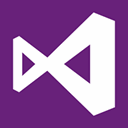Unlocking Collaboration: The Best Microsoft Team Foundation Server Alternatives
Microsoft Team Foundation Server (TFS), commonly abbreviated as TFS, has long been a cornerstone for collaborative software development, offering robust solutions for source control, data collection, reporting, and project tracking. However, as development needs evolve and teams seek more flexible, feature-rich, or specialized tools, many are looking for compelling Microsoft Team Foundation Server alternatives. Whether you're seeking cloud-native solutions, open-source freedom, or platforms with specific integrations, the market offers a diverse range of powerful contenders.
Top Microsoft Team Foundation Server Alternatives
Finding the perfect replacement for TFS can significantly enhance your team's workflow, boost productivity, and provide access to modern development practices. Here's a curated list of the best alternatives, each offering unique strengths to cater to different project requirements and team sizes.

GitHub
GitHub is a leading web-based hosting service for projects leveraging the Git revision control system. It stands out as an excellent Microsoft Team Foundation Server alternative for teams prioritizing distributed version control and a vast community. It operates on a Freemium model and is available across Mac, Windows, Web, Android, Windows S, Android Tablet, and BSD platforms. Key features include File Versioning, Git integration, Unlimited private repos, and robust Version and Source control, making it highly comparable in functionality to TFS for code management.

GitLab
GitLab offers web-based Git repository management alongside a comprehensive suite of tools for wiki, code reviews, issue-tracking, and CI/CD pipelines. This makes it a formidable open-source Microsoft Team Foundation Server alternative, especially for teams seeking an all-in-one DevOps platform. Available as Freemium and Open Source, it supports Linux, Web, BSD, Self-Hosted, and Ruby. GitLab boasts features like Unlimited private repos, Continuous Integration (CI), Continuous Deployment (CD), and Continuous Builds, providing a complete development lifecycle solution.

Git
Git is a free and open-source, distributed version control system renowned for handling projects of all sizes with speed and efficiency. As the underlying technology for many popular platforms, Git itself serves as a fundamental Microsoft Team Foundation Server alternative for pure version control needs. It's available across Mac, Windows, Linux, Android, iPhone, BSD, and Haiku, emphasizing distributed Version and Source control.

Bitbucket
Bitbucket provides robust code collaboration and version control, offering both hosted (freemium) and commercial self-hosted options. It's an excellent Microsoft Team Foundation Server alternative for teams seeking both Git and Mercurial support. Available on Mac, Windows, Linux, Web, and Self-Hosted platforms, Bitbucket excels with features like Private repositories, Jira integration, and Real-time collaboration, mirroring TFS's integrated approach to development.

SourceForge
SourceForge is a venerable web-based source code repository, acting as a centralized location for managing open-source software development. While perhaps less feature-rich for integrated project management than TFS, it remains a strong Free and Web-based Microsoft Team Foundation Server alternative for Version and Source control, particularly for open-source projects.

JIRA
JIRA, trusted by thousands of businesses, is a leading bug tracking, issue tracking, and project management tool. While not a direct version control system like TFS, it's an excellent Commercial Microsoft Team Foundation Server alternative for teams focused on agile project management and issue tracking. Available on Mac, Web, and Self-Hosted platforms, JIRA offers Multi-project management, Bug reporting, Kanban boards, and customizable workflows, complementing separate source control solutions.

Apache Subversion
Apache SVN is a centralized version control system that serves as a solid Free and Open Source Microsoft Team Foundation Server alternative, especially for teams accustomed to centralized workflows. Available on Mac, Windows, Linux, BSD, and Haiku, it focuses on Version and Source control based on the concept of change-sets, offering a robust and stable solution.

Mercurial SCM
Mercurial is a free, distributed source control management tool known for efficiently handling projects of any size with an easy and intuitive command line interface. As a Free and Open Source distributed system, it's a compelling Microsoft Team Foundation Server alternative for teams seeking an alternative to Git or a more lightweight distributed VCS. It runs on Mac, Windows, Linux, BSD, and Haiku, providing core Version and Source control capabilities.

Azure DevOps
Azure DevOps, formerly Visual Studio Team Services, offers continuous delivery services for teams to share code, track work, and ship software. As a Freemium and Web-based offering from Microsoft itself, Azure DevOps is arguably the most direct and modern Microsoft Team Foundation Server alternative for teams looking to migrate to the cloud while retaining a familiar ecosystem. It features robust Continuous Integration and Version and Source control capabilities, effectively extending and enhancing the TFS experience in a cloud-native environment.

ZenTao
ZenTao is an open-source project management tool that strongly supports Scrum methodology, integrating product management, project management, bug management, and QA management. It serves as a comprehensive Freemium and Open Source Microsoft Team Foundation Server alternative for teams needing strong project lifecycle management. Available on Windows, Linux, Web, Android, and Self-Hosted platforms, ZenTao includes features like Bug reporting, Burndown charts, Kanban boards, and Scrum boards, making it excellent for agile teams.
The landscape of software development tools is rich and diverse. While Microsoft Team Foundation Server has served many teams well, exploring these alternatives can open up new possibilities for efficiency, collaboration, and innovation. We encourage you to explore the best fit based on your team's specific needs, budget, preferred platforms, and workflow requirements.